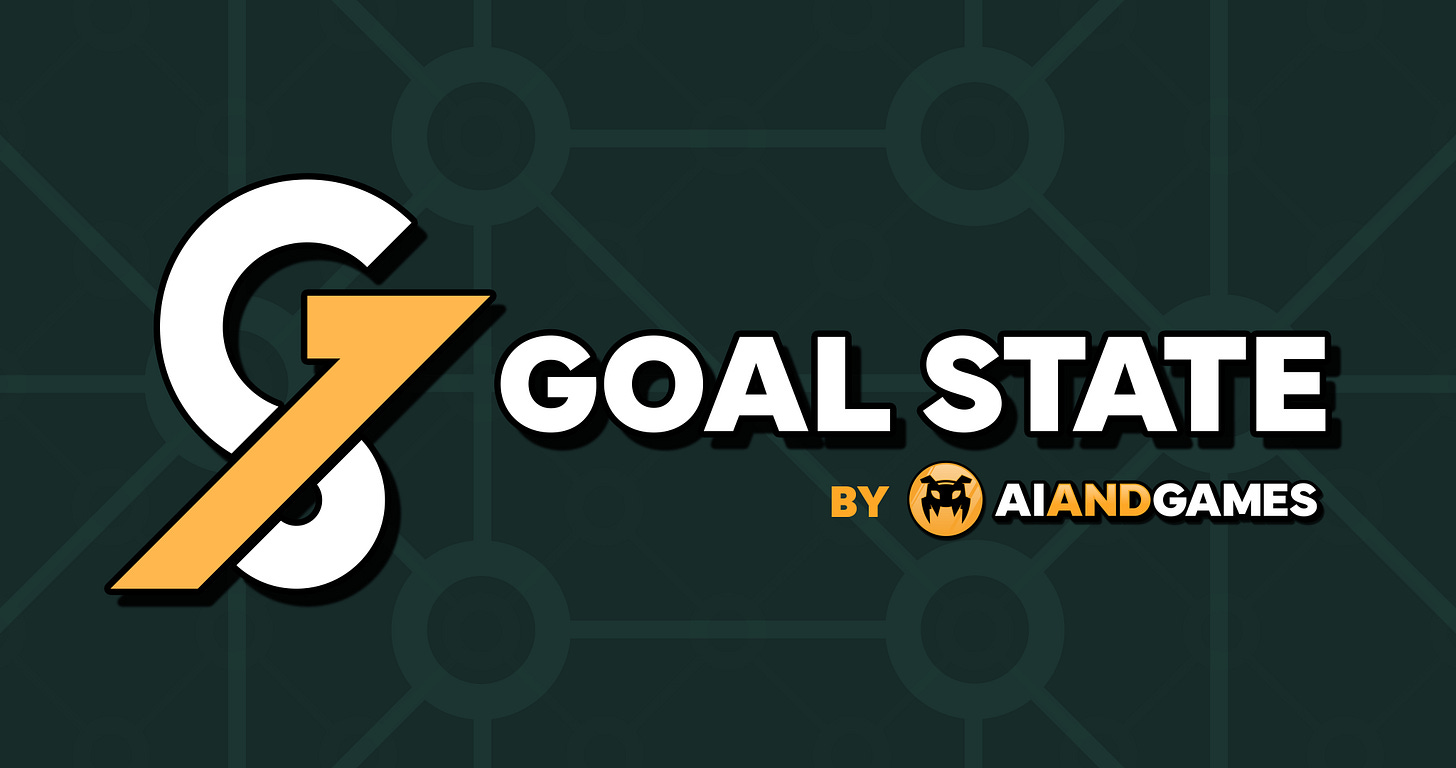Introducing 'Goal State'
My new series of online courses for game AI coming to Kickstarter in Q3 2024
Today I’m proud to announce my latest project, Goal State, is coming to Kickstarter in Q3 of 2024. Goal State will be a series of online courses and educational content on artificial intelligence fo…




